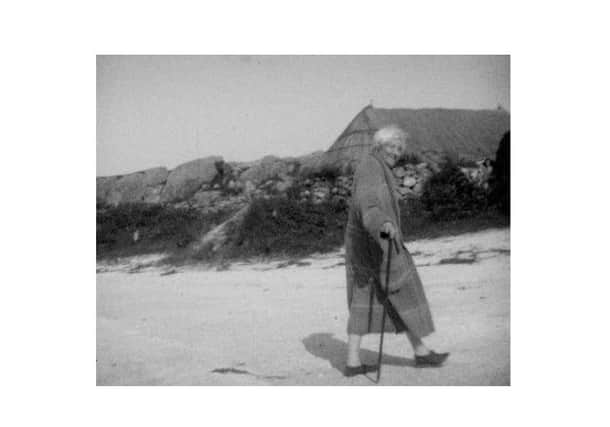Hippfest: Casting new light on Hebridean song collector Marjory Kennedy-Fraser


For many’s the year, mention of the Gaelic song-collecting activities of Marjory Kennedy-Fraser among today’s traditional music cognoscenti tended to arouse, at politest, a shake of the head. Certainly her industrious song collecting in the Hebrides around the turn of the 19th and 20th centuries and her subsequent published arrangements tended to alter the original lyrics and tunes, often inappropriately, to suit the musical mores of the day, prompting accusations of Celtic mist, particularly from Gaels.
“This Celtic Twilight never bore any earthy relation to anything in Gaelic life,” a young and indignant Sorley MacLean wrote in the 1930s, although he later modified his opinion. These days we are, perhaps, a little less judgemental. Kennedy-Fraser (1857-1930) was, after all, a pioneer in field recording and honest in stating that she was using the material for “art song”, adding that there was no substitute for the traditional as sung traditionally. Her widely selling collections inspired other composers and did draw attention to the riches of Gaelic song and lore.
Advertisement
Hide AdAdvertisement
Hide AdNow audiences have a chance to consider Kennedy-Fraser’s activities for themselves on 17 March, when storyteller, pianist and flautist Marion Kenny and singer and viola player Mairi Campbell perform their especially composed music to accompany archive film of that doughty lady at work in Journey to the Isles: Marjory Kennedy-Fraser. Commissioned under the aegis of Scotland’s Year of Stories, the show is part of the unique Hippodrome Silent Film Festival – known as Hippfest – which returns next week, bringing old black and white films plus new live scores to the pre-art-deco splendour of Bo’ness’s Hippodrome, Scotland’s first purpose-built cinema.
Well-known as a fine singer of traditional song, as well as of her own contemporary material, Campbell feels a personal connection to Kennedy-Fraser, having learned some of her anglicised song arrangements in her school choir in the 1970s.
The Hippfest show, she says, is enriching her understanding of the pioneer collector’s work, adding: “The balance between image and music is an interesting one. You’re really trying to express the emotions in the images, many of which look happy and relaxed; or getting out of boats, rain soaked walks, wild winds and intimate gatherings in blackhouses. It was clearly quite a feat for Kennedy-Fraser to get her bulky recording equipment on and off boats – we’re talking 1905.”
While aware of the mixed feelings towards Kennedy-Fraser’s treatment of Gaelic song, she and Kenny are choosing not to focus on them overmuch, “but hope to broaden the understanding of where she was coming from, and of her [Gaelic-speaking] collaborator, Kenneth MacLeod. I understand the feelings of some Gaels, as their culture had been broken, provoking grief and anger still felt today. Being visited by a classical musician on the make must have rubbed it in, but she was a composer and folk collector, much like Dvorak, Britten or Bartok … what do you do? It’s an old story.
“But what’s interesting is that she got all the flack, as opposed to Macleod, the lyricist. I think misogyny has played its part.”
Journey to the Isles is just one show in an eclectically charged Hippfest programme, its film subjects ranging from Mary Queen of Scots to the celebrated First World War nurse Edith Cavell. The Loves of Mary, Queen of Scots features live accompaniment on cello, pipes and piano from Wendy Weatherby, Frank McLaughlin and David Trouton.
Another notable screening is the 1930s City Girl (19 March), by the celebrated director FW Murnau, accompanied by the Dodge Brothers blues band (including film critic Mark Kermode on harmonica) along with a Hippfest veteran, broadcaster, composer and “silent” pianist Neil Brand.
Advertisement
Hide AdAdvertisement
Hide AdAnd if it’s Gothic rather than skiffle you’re after, later that evening multi-instrumentalist Stephen Horne and harpist Elizabeth-Jane Baldry provide the live score for a “brooding and impressionistic” 1928 French take on Edgar Alan Poe’s Fall of the House of Usher.
Hippfest is at the Bo’ness Hippodrome from 16-20 March, see www.hippfest.co.uk
A message from the Editor:
Thank you for reading this article. We're more reliant on your support than ever as the shift in consumer habits brought about by coronavirus impacts our advertisers.
If you haven't already, please consider supporting our trusted, fact-checked journalism by taking out a digital subscription at https://www.scotsman.com/subscriptions